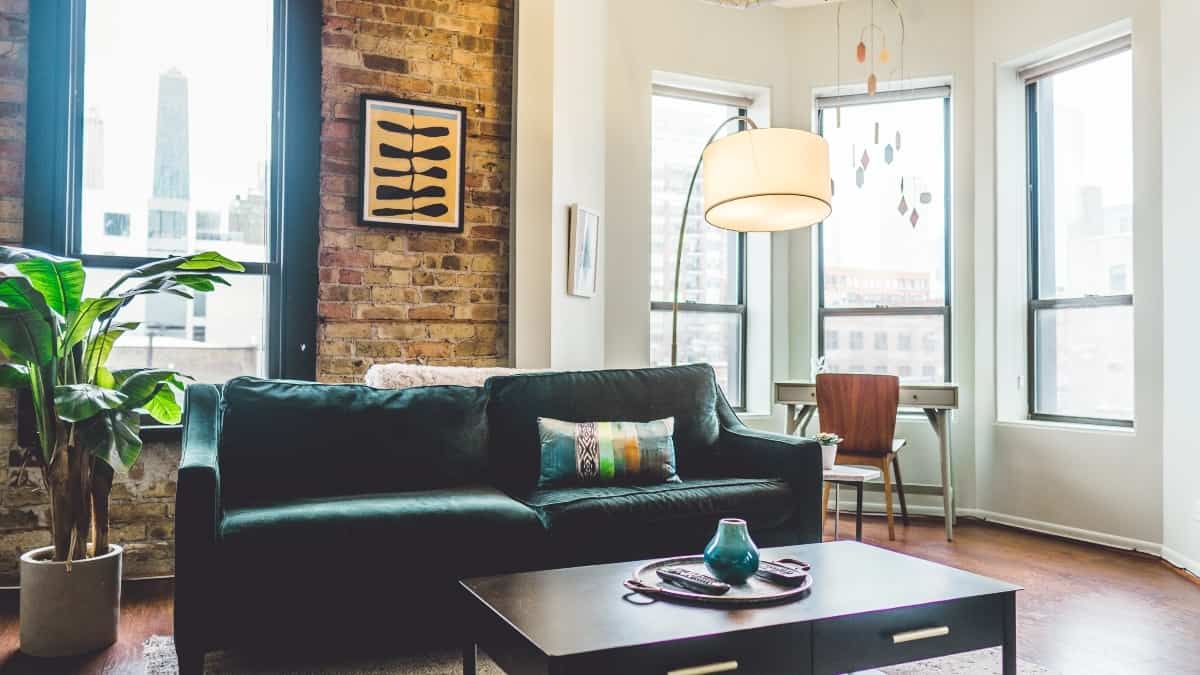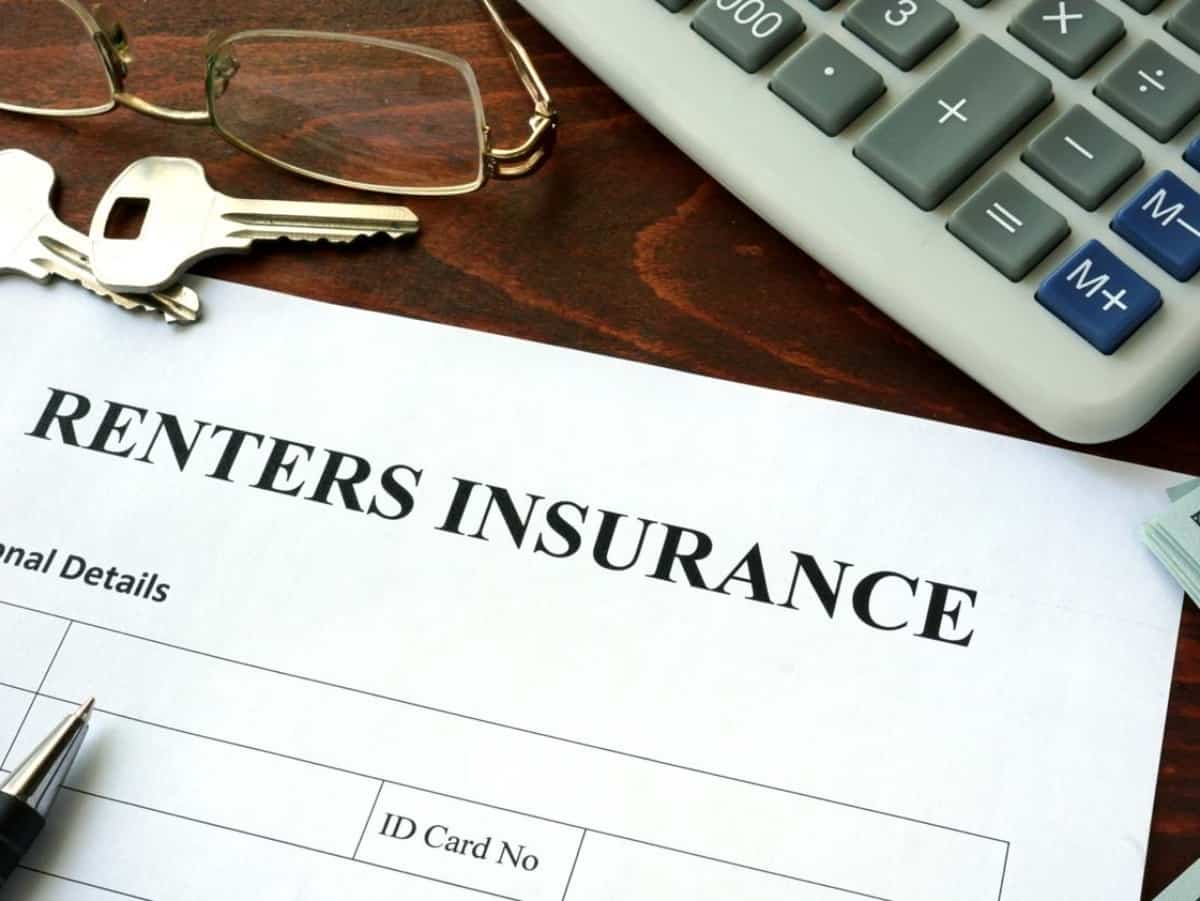What does renters insurance cover? That’s a great question. Many of us are familiar with homeowner’s insurance or auto insurance, and perhaps think insurance is only reserved for when you own something. However, this couldn’t be further from the truth. Renter’s insurance is a must-have for its in-depth coverage that can protect you against a variety of hurdles life may throw your way.
Just like you have auto insurance to protect you if something goes wrong on the road, you should have renters insurance if something goes south in your apartment or other rental space. In this guide, we’ll help you answer what does renters insurance cover. Typically, renters insurance covers personal property coverage, personal liability coverage, and loss of use coverage. Before we go into detail on these coverages, let’s first define renters insurance.
Typically, renters insurance covers personal property coverage, personal liability coverage, and loss of use coverage.
What Is Renters Insurance?
Renters insurance, sometimes called tenants insurance or HO-4 insurance, serves to protect your personal property from damages or other tragic instances (theft, fire, water damage) in your rented space.
You may not think you need renters insurance if your landlord has property insurance, but this isn’t true. Your landlord’s property insurance typically only covers the structure itself and accidents or damages that occur in public areas. This can include elevators or front stoops. We recommend everyone who is renting a home gets renters insurance. While they may not require it at your property, there are far too many benefits to having renters insurance to overlook.

A Few More Things To Consider
There are a few things you should also keep in mind when you’re ready to shop for coverage. This includes premium costs, the deductible, the insurance company you purchase from, and the amount of coverage in your policy.
Premium Costs
One of the great things about renters insurance is its affordability. While the average coverage cost is just $14 a year, you’ll still want to find a premium that fits your lifestyle and budget. Your credit score, your coverage, your deductible, and where you live often influence your premium cost.
Deductible
This is the amount of money you’ll pay out of pocket to cover the expense of an item that incurs damage, is stolen, or is lost. With renters insurance, your deductible is only linked to your personal property coverage (which we’ll cover later). A great way to have a smaller monthly premium is to increase your deductible. Alternatively, decreasing your deductible results in a larger premium. Renters insurance deductibles are most commonly $500-$1,000.
Insurance Company
To get the most out of your renters insurance policy, pick an insurance provider that’s the best fit for your needs. Take some time to read reviews and check how a provider typically handles claims. Make sure they have your preferred features and services (like special online features or top-rated customer service). Do their premiums match your budget? Do they have discounts? And most importantly, does the provider have the level of coverage you need?
Amount of Coverage
This leads us to our final tip, knowing how much coverage you need. To determine this, you’ll want to do a little inventory of your possessions. You should also consider the likelihood of damage happening inside your rental. For example, maybe you live in an older building with pipes that can burst. Or maybe your property has been getting lots of break-ins recently. These are just a few signs you should shop for a policy with more coverage.

What Does Renters Insurance Cover?
Personal Property Coverage
As you grow older, you accumulate more stuff. Some of these items will hold sentimental value. Other items will be expensive. No matter where your possessions fall on the spectrum, you’ll want to keep them safe with renters insurance coverage. Personal property coverage lets you do just that.
This type of coverage is standard for renters insurance. It provides renters with financial reimbursement should their personal property become damaged, destroyed, stolen, or even lost in a protected event. Personal property covered by renters insurance includes an eclectic mix of belongings. This ranges from furniture and electronics to clothing and jewelry. Protected events may vary depending upon your insurer, but generally, events for which you can file a claim for financial reimbursement include:
- Damages by vehicles that are not your own
- Theft — Most insurers will offer property protection coverage on covered items even if they are stolen when they are not in your home.
- Fire and lightning
- Vandalism
- Short-circuit damages from electrical appliances
- Smoke damage
- Damage from the heavy weight of snow or ice
Remember, personal property coverage has a deductible. So you will have to put money towards replacing or repairing your item before insurance can kick in.
Understanding Personal Property Coverages
There are two main types of coverages for your personal property. These are Replacement Cost Value and Actual Cost Value. Deciding which one you want depends on the level of coverage you’ll get from an insurance company. Let’s quickly break down the key differences between the two.
- Replacement Cost Value Policy (RCV). Your renters insurance provider will completely reimburse you at the full value of your lost or damaged item. Let’s say someone stole your $2,000 laptop. With RCV, your insurance will provide you either with the same laptop or $2,000 for a replacement.
- Actual Cost Value (ACV). The Actual Cost Value Policy works how it sounds. Your insurance provider reimburses you based on your item’s depreciated value. Therefore, if your $2,000 laptop has depreciated by $1,000, you’ll only get a check for $1,000.
Personal Liability Coverage and Medical Expenses
It’s Saturday night, and your friend or family member comes over to make dinner. They get distracted in the kitchen and end up burning their hands. Or maybe your cat bites them while playing and now they have an infection. Either incident sends your loved one to the hospital to seek medical care. With good health insurance, they may cover those treatments fully. However, if they don’t have insurance or if their treatments aren’t covered, then this person and their insurance company can go after you with a lawsuit.
Renters insurance will protect you in situations where someone gets injured in your home. For this specific example, coverages include your insurer providing an attorney in the event of a lawsuit and offering financial protection in terms of a settlement where necessary.
Loss of Use Coverage
What does renters insurance cover? Thanks to the loss of use coverage, it probably covers a lot more than you think.
For example, let’s say your rental space suddenly becomes uninhabitable because of a covered event. With rental insurance, your provider will pay for the hotel and meal expenses you incur while a team repairs damages in your home.
Talk to your insurer to learn what events they can cover, but they generally include things like water damages due to broken pipes and property damage caused by someone else.
The best renters insurance will include compensation for the temporary residence you choose, additional gas needed to commute from your temporary location, and allow coverage for an extensive period.

Additional Types of Coverages
The coverages above are the three primary types of protection most standard renters insurance policies have. But in addition to these basics, different policies will also extend their coverage to include:
- Credit Card/Bank Forgery. While a lot of credit cards offer fantastic fraud protection these days, where they don’t, renters insurance will kick in. This type of insurance will cover fraudulent charges.
- Someone Else’s Property. Let’s say you borrow someone else’s property (such as a laptop or book). However, it gets damaged, stolen, or lost from a fire or water damage in your apartment. Your renter’s insurance may protect the cost of replacing that property.
- Food Loss. Some insurance companies will also cover the cost of food in your refrigerator should a power outage take those appliances out.
What Doesn’t Renters Insurance Cover
- Bed Bugs and Other Critters. Having bed bugs or other creepy critters in your home is unpleasant. However, renters insurance does not cover this. These are issues you’ll have to address directly with your apartment complex.
- Damage From Floods or Earthquakes. Typically, renters insurance doesn’t stretch out to cover these terms. However, there are providers who may make exceptions. We suggest purchasing flood or earthquake insurance separately if you live somewhere at risk of either natural disaster.
- Fungi, Mold, and Bacteria. Unfortunately, renters insurance rarely covers these nasty home invaders. However, you can purchase additional coverage to include this in your policy. This add-on is known as an endorsement. Speak to your insurance agent to learn more about your options for establishing this protection. Or seek an all-risk policy that insures just about every peril.
- Car Theft or Damage. No, renters insurance won’t cover car theft or damage. However, car insurance certainly can. Check out our guide on the top 10 auto insurance companies to help narrow your choices.
If you have more questions about coverage concerning any of these incidents, talk to a licensed insurance expert at ONIT Home to learn more about available insurance solutions.

How To Get Renters Insurance
The best way to get renters insurance is to research your options and the top providers.
Take inventory on your personal property and estimate the amount of coverage you need. Next, schedule time to speak with a representative from a company that checks off most of your boxes (like affordability and level of coverage) and learn about their policies. If it’s a great match, move forward with signing the dotted line.
If you already have auto insurance, your company likely has a bundling option for renters and auto insurance. Speak to your insurance agent to go over your options. Keep in mind that bundling insurance is also a great way to save money.
Let ONIT Home Find the Right Coverage for You
Not sure how to find the right renters insurance policy? Let ONIT Home guide you in the right direction.
ONIT is a team of licensed insurance brokers that specialize in finding the best coverage and deals for our customers. We know insurance isn’t the most exciting thing to shop for and confusing terms often get thrown around. We’re here to help you understand what’s going in your policy and we’ll make sure you’re getting the coverage you need. Keep insurance simple and start finding the right policy today with ONIT. Call us at 1-833-433-0331 or request a quote to get started.
ONIT Home is your one-stop shop to create a space for families to enjoy. Bundle your purchases together for a $1,500 voucher to be used with our water filtration, security systems, or solar panels. Or, receive a $2,000 security system for $1,000 with a purchase of a water filtration system. Ready to go solar? Every solar panel system is a two week installation and comes with a free home security and water filtration system! Learn more about our bundling deals today by calling us at 1-833-433-0331. Whatever you need, we’re ONIT!



